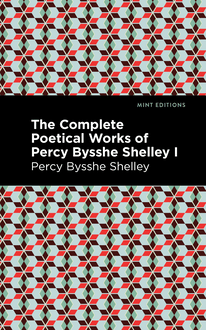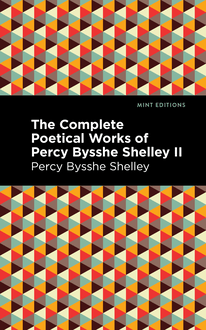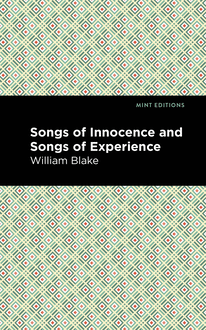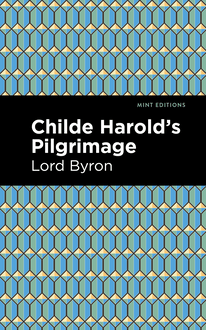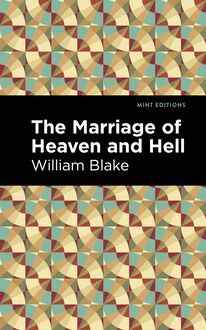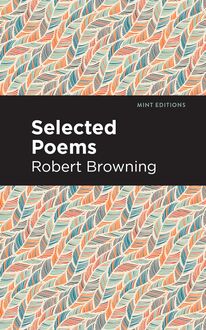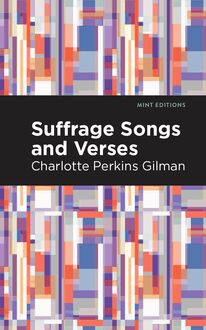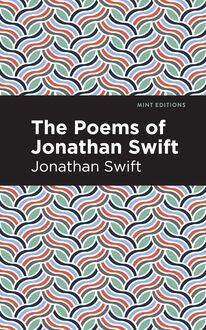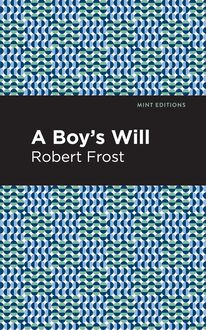-
 Univers
Univers
-
 Ebooks
Ebooks
-
 Livres audio
Livres audio
-
 Presse
Presse
-
 Podcasts
Podcasts
-
 BD
BD
-
 Documents
Documents
-
- Cours
- Révisions
- Ressources pédagogiques
- Sciences de l’éducation
- Manuels scolaires
- Langues
- Travaux de classe
- Annales de BEP
- Etudes supérieures
- Maternelle et primaire
- Fiches de lecture
- Orientation scolaire
- Méthodologie
- Corrigés de devoir
- Annales d’examens et concours
- Annales du bac
- Annales du brevet
- Rapports de stage
La lecture à portée de main
Vous pourrez modifier la taille du texte de cet ouvrage
Découvre YouScribe en t'inscrivant gratuitement
Je m'inscrisDécouvre YouScribe en t'inscrivant gratuitement
Je m'inscrisEn savoir plus
Vous pourrez modifier la taille du texte de cet ouvrage
En savoir plus

Description
Idylls of the King (1859-1885) is a cycle of narrative poems by British poet Alfred, Lord Tennyson. Written while Tennyson was serving as Poet Laureate, Idylls of the King reworks the medieval Arthurian legend in blank verse and with an elegiac tone. Based on Sir Thomas Malory’s Le Morte d’Arthur and the early British Mabinogion manuscripts, Tennyson’s work connects an ancient tradition to the reign and ideals of Queen Victoria.
“The Coming of Arthur” traces Arthur’s rise to power, narrating his role in the siege of Cameliard and the liberation of Leodogran’s kingdom. Following their victory, Arthur marries Guinevere, Leodogran’s daughter, who is brought to Camelot by the loyal Sir Lancelot, one of Arthur’s finest knights. In “Gareth and Lynette,” the young Gareth begins as a worker in Camelot’s kitchens before ascending to the role of knight and being sent on a quest to Castle Perilous. In “Enid,” Sir Geraint, disturbed by a rumored liaison between Lancelot and Guinevere, grows suspicious of his wife Enid and decides to leave Camelot. Unable to quell his distrust and jealousy, Geraint brings Enid on a dangerous quest in order to test her faith. Other sections of the sequence follow the quest for the Holy Grail, Guinevere’s escape from Camelot, and Mordred’s betrayal of Arthur and the Knights of the Round Table. Idylls of the King illuminates an ancient legend for modern audiences, presenting stories of honor, romance, and adventure in engaging, accessible verse.
With a beautifully designed cover and professionally typeset manuscript, this edition of Alfred, Lord Tennyson’s Idylls of the King is a classic of English literature reimagined for modern readers.
Sujets
Informations
| Publié par | Mint Editions |
| Date de parution | 12 janvier 2021 |
| Nombre de lectures | 0 |
| EAN13 | 9781513275789 |
| Langue | English |
| Poids de l'ouvrage | 1 Mo |
Informations légales : prix de location à la page 0,0500€. Cette information est donnée uniquement à titre indicatif conformément à la législation en vigueur.
Extrait
Idylls of the King
Alfred, Lord Tennyson
Idylls of the King was first published in 1859.
This edition published by Mint Editions 2020.
ISBN 9781513270784 | E-ISBN 9781513275789
Published by Mint Editions®
minteditionbooks.com
Publishing Director: Jennifer Newens
Design & Production: Rachel Lopez Metzger
Project Manager: Micaela Clark
Typesetting: Westchester Publishing Services
C ONTENTS D EDICATION T HE C OMING OF A RTHUR G ARETH AND L YNETTE T HE M ARRIAGE OF G ERAINT G ERAINT AND E NID B ALIN AND B ALAN M ERLIN AND V IVIEN L ANCELOT AND E LAINE T HE H OLY G RAIL P ELLEAS AND E TTARRE T HE L AST T OURNAMENT G UINEVERE T HE P ASSING OF A RTHUR T O THE Q UEEN
D EDICATION
These to His Memory—since he held them dear,
Perchance as finding there unconsciously
Some image of himself—I dedicate,
I dedicate, I consecrate with tears—
These Idylls.
And indeed He seems to me
Scarce other than my king’s ideal knight,
‘Who reverenced his conscience as his king;
Whose glory was, redressing human wrong;
Who spake no slander, no, nor listened to it;
Who loved one only and who clave to her—’
Her—over all whose realms to their last isle,
Commingled with the gloom of imminent war,
The shadow of His loss drew like eclipse,
Darkening the world. We have lost him: he is gone:
We know him now: all narrow jealousies
Are silent; and we see him as he moved,
How modest, kindly, all-accomplished, wise,
With what sublime repression of himself,
And in what limits, and how tenderly;
Not swaying to this faction or to that;
Not making his high place the lawless perch
Of winged ambitions, nor a vantage-ground
For pleasure; but through all this tract of years
Wearing the white flower of a blameless life,
Before a thousand peering littlenesses,
In that fierce light which beats upon a throne,
And blackens every blot: for where is he,
Who dares foreshadow for an only son
A lovelier life, a more unstained, than his?
Or how should England dreaming of his sons
Hope more for these than some inheritance
Of such a life, a heart, a mind as thine,
Thou noble Father of her Kings to be,
Laborious for her people and her poor—
Voice in the rich dawn of an ampler day—
Far-sighted summoner of War and Waste
To fruitful strifes and rivalries of peace—
Sweet nature gilded by the gracious gleam
Of letters, dear to Science, dear to Art,
Dear to thy land and ours, a Prince indeed,
Beyond all titles, and a household name,
Hereafter, through all times, Albert the Good.
Break not, O woman’s-heart, but still endure;
Break not, for thou art Royal, but endure,
Remembering all the beauty of that star
Which shone so close beside Thee that ye made
One light together, but has past and leaves
The Crown a lonely splendour.
May all love,
His love, unseen but felt, o’ershadow Thee,
The love of all Thy sons encompass Thee,
The love of all Thy daughters cherish Thee,
The love of all Thy people comfort Thee,
Till God’s love set Thee at his side again!
T HE C OMING OF A RTHUR
Leodogran, the King of Cameliard,
Had one fair daughter, and none other child;
And she was the fairest of all flesh on earth,
Guinevere, and in her his one delight.
For many a petty king ere Arthur came
Ruled in this isle, and ever waging war
Each upon other, wasted all the land;
And still from time to time the heathen host
Swarmed overseas, and harried what was left.
And so there grew great tracts of wilderness,
Wherein the beast was ever more and more,
But man was less and less, till Arthur came.
For first Aurelius lived and fought and died,
And after him King Uther fought and died,
But either failed to make the kingdom one.
And after these King Arthur for a space,
And through the puissance of his Table Round,
Drew all their petty princedoms under him.
Their king and head, and made a realm, and reigned.
And thus the land of Cameliard was waste,
Thick with wet woods, and many a beast therein,
And none or few to scare or chase the beast;
So that wild dog, and wolf and boar and bear
Came night and day, and rooted in the fields,
And wallowed in the gardens of the King.
And ever and anon the wolf would steal
The children and devour, but now and then,
Her own brood lost or dead, lent her fierce teat
To human sucklings; and the children, housed
In her foul den, there at their meat would growl,
And mock their foster mother on four feet,
Till, straightened, they grew up to wolf-like men,
Worse than the wolves. And King Leodogran
Groaned for the Roman legions here again,
And Caesar’s eagle: then his brother king,
Urien, assailed him: last a heathen horde,
Reddening the sun with smoke and earth with blood,
And on the spike that split the mother’s heart
Spitting the child, brake on him, till, amazed,
He knew not whither he should turn for aid.
But—for he heard of Arthur newly crowned,
Though not without an uproar made by those
Who cried, ‘He is not Uther’s son’—the King
Sent to him, saying, ‘Arise, and help us thou!
For here between the man and beast we die.’
And Arthur yet had done no deed of arms,
But heard the call, and came: and Guinevere
Stood by the castle walls to watch him pass;
But since he neither wore on helm or shield
The golden symbol of his kinglihood,
But rode a simple knight among his knights,
And many of these in richer arms than he,
She saw him not, or marked not, if she saw,
One among many, though his face was bare.
But Arthur, looking downward as he past,
Felt the light of her eyes into his life
Smite on the sudden, yet rode on, and pitched
His tents beside the forest. Then he drave
The heathen; after, slew the beast, and felled
The forest, letting in the sun, and made
Broad pathways for the hunter and the knight
And so returned.
For while he lingered there,
A doubt that ever smouldered in the hearts
Of those great Lords and Barons of his realm
Flashed forth and into war: for most of these,
Colleaguing with a score of petty kings,
Made head against him, crying, ‘Who is he
That he should rule us? who hath proven him
King Uther’s son? for lo! we look at him,
And find nor face nor bearing, limbs nor voice,
Are like to those of Uther whom we knew.
This is the son of Gorlois, not the King;
This is the son of Anton, not the King.’
And Arthur, passing thence to battle, felt
Travail, and throes and agonies of the life,
Desiring to be joined with Guinevere;
And thinking as he rode, ‘Her father said
That there between the man and beast they die.
Shall I not lift her from this land of beasts
Up to my throne, and side by side with me?
What happiness to reign a lonely king,
Vext—O ye stars that shudder over me,
O earth that soundest hollow under me,
Vext with waste dreams? for saving I be joined
To her that is the fairest under heaven,
I seem as nothing in the mighty world,
And cannot will my will, nor work my work
Wholly, nor make myself in mine own realm
Victor and lord. But were I joined with her,
Then might we live together as one life,
And reigning with one will in everything
Have power on this dark land to lighten it,
And power on this dead world to make it live.’
Thereafter—as he speaks who tells the tale—
When Arthur reached a field-of-battle bright
With pitched pavilions of his foe, the world
Was all so clear about him, that he saw
The smallest rock far on the faintest hill,
And even in high day the morning star.
So when the King had set his banner broad,
At once from either side, with trumpet-blast,
And shouts, and clarions shrilling unto blood,
The long-lanced battle let their horses run.
And now the Barons and the kings prevailed,
And now the King, as here and there that war
Went swaying; but the Powers who walk the world
Made lightnings and great thunders over him,
And dazed all eyes, till Arthur by main might,
And mightier of his hands with every blow,
And leading all his knighthood threw the kings
Carados, Urien, Cradlemont of Wales,
Claudias, and Clariance of Northumberland,
The King Brandagoras of Latangor,
With Anguisant of Erin, Morganore,
And Lot of Orkney. Then, before a voice
As dreadful as the shout of one who sees
To one who sins, and deems himself alone
And all the world asleep, they swerved and brake
Flying, and Arthur called to stay the brands
That hacked among the flyers, ‘Ho! they yield!’
So like a painted battle the war stood
Silenced, the living quiet as the dead,
And in the heart of Arthur joy was lord.
He laughed upon his warrior whom he loved
And honoured most. ‘Thou dost not doubt me King,
So well thine arm hath wrought for me today.’
‘Sir and my liege,’ he cried, ‘the fire of God
Descends upon thee in the battle-field:
I know thee for my King!’ Whereat the two,
For each had warded either in the fight,
Sware on the field of death a deathless love.
And Arthur said, ‘Man’s word is God in man:
Let chance what will, I trust thee to the death.’
Then quickly from the foughten field he sent
Ulfius, and Brastias, and Bedivere,
His new-made knights, to King Leodogran,
Saying, ‘If I in aught have served thee well,
Give me thy daughter Guinevere to wife.’
Whom when he heard, Leodogran in heart
Debating—‘How should I that am a king,
However much he holp me at my need,
Give my one daughter saving to a king,
And a king’s son?’—lifted his voice, and called
A hoary man, his chamberlain, to whom
He trusted all things, and of him required
His counsel: ‘Knowest thou aught of Arthur’s birth?’
Then spake the hoary chamberlain and said,
‘Sir King, there be but two old men that know:
And each is twice as old as I; and one
Is Merlin, the wise man that ever served
King Uther through his magic art; and one
Is Merlin’s master (so they call him) Bleys,
Who taught him magic, but the scholar ran
Before the master, and so far, that Bleys,
Laid magic by, and sat him down, and wrote
All things and whatsoever Merlin did
In one great annal-book, where after-years
Will
-
 Univers
Univers
-
 Ebooks
Ebooks
-
 Livres audio
Livres audio
-
 Presse
Presse
-
 Podcasts
Podcasts
-
 BD
BD
-
 Documents
Documents
-
Jeunesse
-
Littérature
-
Ressources professionnelles
-
Santé et bien-être
-
Savoirs
-
Education
-
Loisirs et hobbies
-
Art, musique et cinéma
-
Actualité et débat de société
-
Jeunesse
-
Littérature
-
Ressources professionnelles
-
Santé et bien-être
-
Savoirs
-
Education
-
Loisirs et hobbies
-
Art, musique et cinéma
-
Actualité et débat de société
-
Actualités
-
Lifestyle
-
Presse jeunesse
-
Presse professionnelle
-
Pratique
-
Presse sportive
-
Presse internationale
-
Culture & Médias
-
Action et Aventures
-
Science-fiction et Fantasy
-
Société
-
Jeunesse
-
Littérature
-
Ressources professionnelles
-
Santé et bien-être
-
Savoirs
-
Education
-
Loisirs et hobbies
-
Art, musique et cinéma
-
Actualité et débat de société
- Cours
- Révisions
- Ressources pédagogiques
- Sciences de l’éducation
- Manuels scolaires
- Langues
- Travaux de classe
- Annales de BEP
- Etudes supérieures
- Maternelle et primaire
- Fiches de lecture
- Orientation scolaire
- Méthodologie
- Corrigés de devoir
- Annales d’examens et concours
- Annales du bac
- Annales du brevet
- Rapports de stage


